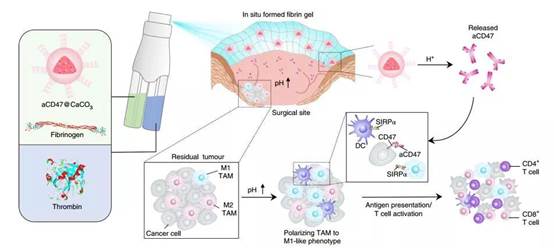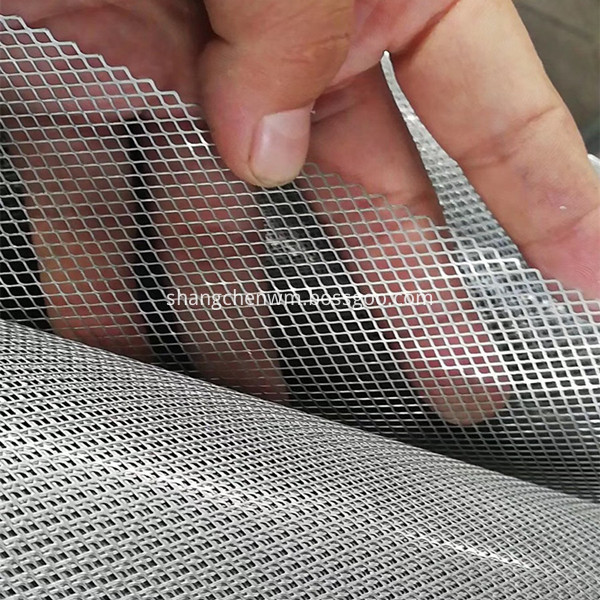Nature Subsidiary: Immunotherapy Nano-spray can inhibit postoperative tumor recurrence
December 24, 2018 Source: Ministry of Science and Technology
Window._bd_share_config={ "common":{ "bdSnsKey":{ },"bdText":"","bdMini":"2","bdMiniList":false,"bdPic":"","bdStyle":" 0","bdSize":"16"},"share":{ }};with(document)0[(getElementsByTagName('head')[0]||body).appendChild(createElement('script')) .src='http://bdimg.share.baidu.com/static/api/js/share.js?v=89860593.js?cdnversion='+~(-new Date()/36e5)];The latest results of the release of Professor Gu Yu and his research team at UCLA: a nanoparticle spray that is sprayed into the tumor resection cavity after a tumor resection and can quickly form a protein gel at the wound, which not only promotes Wound healing also activates the immune system and prevents the recurrence and metastasis of tumor cells. Related articles are published in the journal Nature Nanotechnology.
Tumor cells have a variety of means to escape the sanctions of the immune system. Among them, CD47 protein will send a signal of “don't eat me†to macrophages, and the up-regulation of CD47 expression is one of the means for tumor cells to avoid macrophages. Scientists want to reactivate the ability of macrophages to recognize tumor cells by blocking CD47, but because of the presence of CD47 on the surface of red blood cells, systemic administration of blocking CD47 is always unable to avoid side effects such as anemia. Therefore, how to make CD47 antagonists more targeted is a key concern of researchers.
Systemic systemic administration can cause "injury", so that it can be sprayed and sprayed on the tumor wound. Can it be avoided to some extent? To test the idea, the researchers tried to make a spray-type fibrin hydrogel that mixed the CD47 antibody with a thrombin-containing fibrinogen solution to form a fibrin gel in the tumor resection cavity, block CD47, and inhibit cancer. Recurrence and metastasis of tumor cells.
In addition, the CD47 antibody also requires a vector that is not only tasked with carrying nanoparticles, but also attempts to further enhance the immune response. Recent studies have shown that the microenvironment of tumor cells is weakly acidic, and the post-operative inflammatory response will also weaken the damaged tissue locally. In this environment, the M2 phenotype of macrophages will also increase, and this phenotype of macrophages exerts tumor-promoting activity, often associated with tumor metastasis, angiogenesis, and poor clinical efficacy. Calcium carbonate happens to have the ability to clear H+. The researchers treated the mouse tumor resection cavity with calcium carbonate and fibrin gel and detected an enhanced immune effect.

Thus, the researchers produced a combination of a CD47 antibody and a calcium carbonate nanoparticle carrier with a thrombin fibrinogen solution. Such antibody administration is much better than intravenous injection because the injected antibody can only detect 20% of the signal at the tumor resection site, and the spray method can detect 79% of the signal, and the side effects are also observed. Very small. The effect of immunogel treatment is equally satisfactory. The researchers used a mouse model of incomplete tumor resection. After the administration of the spray (1 mg of calcium carbonate per mouse, 50 μg of CD47 antibody), 4 of 8 mice did not find tumor cells. 50% of mice treated with immunogel survived for at least 60 days, whereas mice in the control group did not survive for more than 30 days. Undoubtedly, immunogel treatment successfully activated the immune response of mice, inhibited the growth of tumors, and even eliminated residual tumor cells.
Cancer recurrence is an important cause of treatment failure. If the immunogel treatment method can really be applied clinically, it is undoubtedly a major advance in the history of cancer treatment. After the spray, the cancer "does not leave the roots."
Expanded Metal
Expanded metal also named diamond metal mesh, that uses the high quality low carbon steel plate, aluminium plate, stainless steel plate, galvanized steel plate, nickel plate, titanium plate, lead plate and so on be punched to mesh. Expanded metal mesh including: standard expanded metal, flattened expanded metal, architectural expanded metal, micro expanded metal, ribbon expanded metal, custom fabricated expanded metal.
The surface treatment of expanded metal sheet: PVC coated, galvanized, anodizing, antirust painted
The material: high quality low carbon steel plate, aluminium plate, stainless steel plate, galvanized steel plate, nickel plate, titanium plate, lead plate
The uses of expanded metal panel: Filter Mesh, Filter Cartridge, platforms, catwalks, walkways, decorative building, rail enclosures, conveyors, etc
The advantages of expanded metal:
beautiful, strong and durable
uniform mesh, smooth surface, high friction coefficient and strength
easy cutting and process
The mesh is firm
shockproof
resistant to high temperature
no deformation, no rust
non-toxic and tasteless
easy to use

Expanded Copper Mesh,Copper Expanded Mesh,Decorative Expanded Mesh,Stainless Steel Expanded Metal
ANPING COUNTY SHANGCHEN WIREMESH PRODUCTS CO.,LTD , https://www.scwpwiremesh.com